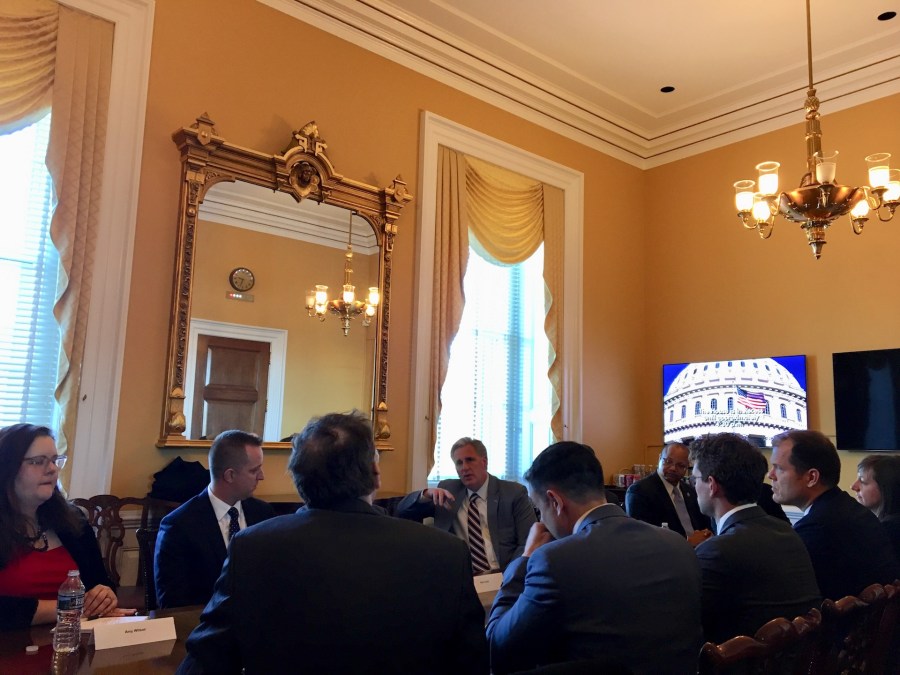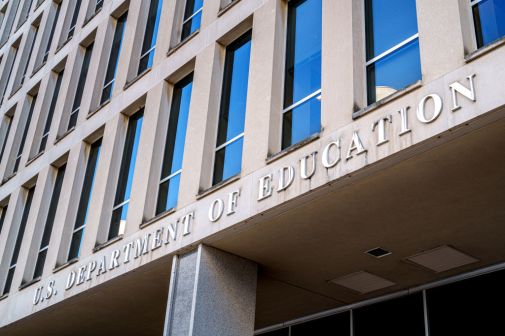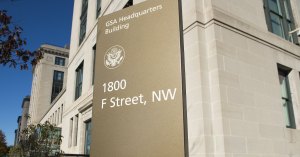The Presidential Innovation Fellowship program cruises along after surviving its first transition

In political science, the first peaceful transition of power is a defining moment for a new democracy — it lends legitimacy to what was previously just the policy of a ruling party. The moment a new leader respects the status quo, democracy is solidified.
The same could be said for government programs transitioning to a new administration.
When President Barack Obama left office, there was some handwringing over what might befall his signature innovation initiatives in tech and science. And while the jury is still out on some (What, for example, is happening at the Office of Science and Technology Policy?), others are cruising right along.
Take, for example, the Presidential Innovation Fellows program. Started by the Obama administration in 2012, the first cohort under President Donald Trump began its tenure nearly two months ago. After the last-minute passage of the TALENT Act codified the program, things are advancing very much as expected, acting Executive Director Ben Willman told FedScoop.
Willman is new to his role as director but an old hand at the program. He was a fellow — the group is often called PIFs — back in 2013 as part of the second round of the program.
Members of that class had staying power — people like Chris Cairns and Aaron Snow went on to form 18F, the government’s digital agency within the General Services Administration. Willman joined 18F too for about a year, before returning to the PIF program as director of strategy.
Since August he’s been serving as acting director and working to rebuild the program’s administrative team. Everyone involved in the PIF program, the fellows themselves and the administrative staff, are hired for short-term contracts with the possibility of extension. This hiring authority rarely extends for more than four years, Willman said.
This meant that when Willman stepped into the director role, he found the rest of the office unstaffed — he brought on Joshua Di Frances as director of operations and Saran Kaba as an operations specialist. The team is “lean” (Di Frances’ word) by design — there’s just one more role (director of communications and marketing) to fill.
But that’s not all Willman has been doing. He also presided over the kickoff of a new cohort of PIFs. The post-inauguration hiring freeze meant the class got off to a late start, but beyond that, Willman said, it’s been business as usual.
“It shows that the work that the fellows are doing is bipartisan, good-for-government work that everyone can get behind,” Willman said in a recent conversation. “It’s exciting that fellows can continue to do this.”
Has the passage of the TALENT Act made a difference in how agencies view the program? Willman said it hasn’t made an operational impact “yet.”
“I would say that we are still engaging agencies and having the same conversations that we were before,” Willman said. “It is nice that we get to reference [the TALENT Act]. But agencies come to us with their problems and challenges, which they did before the TALENT Act and they still do now.”
The program works the same way it always has — PIF leadership meets with agencies to discuss the work a fellow might be able to do. What makes a good PIF problem? It’s all about the guidelines, Di Frances said — or rather the lack thereof.
If an agency knows exactly what problem it wan ts to solve and what it wants to build to solve it, a PIF won’t add much value. The perfect PIF problem, Di Frances told FedScoop, is a bit more “nebulous” — an important problem with potential for impact, but one that requires creative thinking.
“We’re looking for people who are used to starting things in ambivalent or difficult situations,” Willman said. In other words, people who thrive “where the work is not all laid out for you.”
The elephant in the room, of course, is whether the Trump administration is reducing interest in the program. Is “Presidential Innovation Fellow” still a sought-after title? Willman suggested he thinks so, but can’t be sure.
“We had the same high interest across all the other rounds, the application pool was strong,” he said. But “because people self-select to apply, we don’t really know what an effect would have been had the election differed, because we don’t hear about that.”






